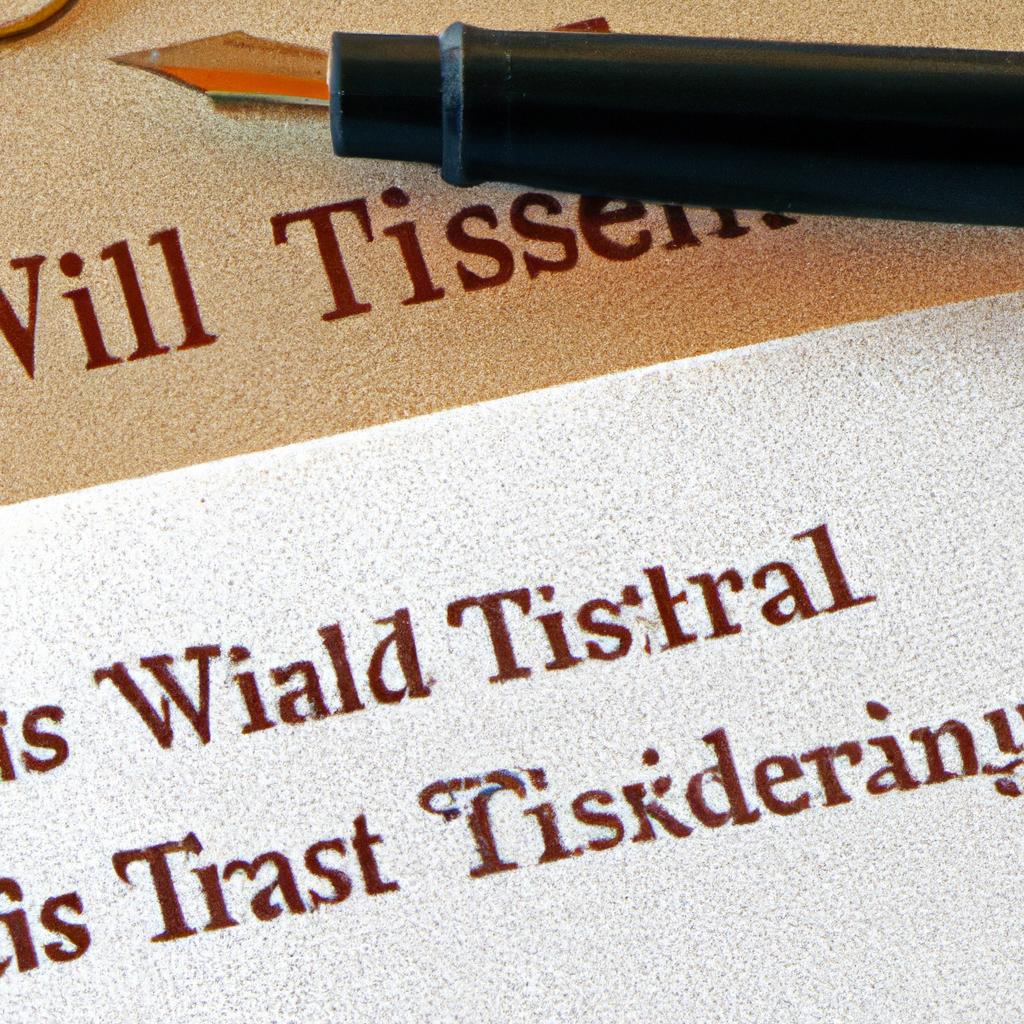As seasoned legal professionals at the premier Morgan Legal Group in New York City, we are often asked to clarify the distinctions between two crucial legal instruments: trust and will. While both serve as essential components of effective estate planning, their functions and implications differ significantly. In this article, we aim to provide a comprehensive analysis of the variances between trust and will, shedding light on their respective roles in securing the future of one’s assets and beneficiaries.
Key distinctions between trust and will in estate planning
When it comes to estate planning, understanding the key distinctions between trust and will is essential for individuals looking to secure their assets and distribute their property according to their wishes. While both trust and will are important estate planning tools, they serve different purposes and have distinct advantages and limitations.
Trust:
- Allows for the management and distribution of assets during one’s lifetime and after death
- Avoids probate, ensuring privacy and minimizing costs
- Provides flexibility in asset distribution and can include specific instructions for beneficiaries
Will:
- Determines the distribution of assets upon death
- Requires probate, which can be time-consuming and costly
- Can designate guardians for minor children and appoint an executor to oversee the estate

Understanding the legal implications of trust versus will
When planning for the future of your assets and loved ones, it’s important to understand the legal implications of choosing between a trust and a will. While both serve as important estate planning tools, they differ in their structure and function. A trust is a legal entity created to hold assets on behalf of a beneficiary, managed by a trustee. A will, on the other hand, is a legal document that outlines how your assets will be distributed after your passing. Here are some key differences between trust and will:
- Control: With a trust, you can specify how and when your assets are distributed, whereas a will only takes effect after your passing.
- Privacy: Trusts are private documents that do not need to go through probate, while wills are public records subject to court supervision.
| Trust | Will |
|---|---|
| Requires a trustee to manage assets | Executor appointed to distribute assets |
| Avoids probate process | Subject to probate |

Evaluating the benefits and limitations of trust and will in asset distribution
Trusts and wills are both important legal tools when it comes to asset distribution, but they serve different purposes and have their own benefits and limitations. Understanding the difference between the two can help individuals make informed decisions about how to best plan for the future of their assets. Here are some key distinctions between trusts and wills:
- Control: With a trust, the creator (or grantor) can specify conditions for asset distribution and appoint a trustee to manage the trust. A will, on the other hand, only goes into effect after the creator passes away, leaving the distribution of assets in the hands of an executor.
- Privacy: Trusts are private legal documents that are not subject to probate, which means asset distribution can be done swiftly and without public record. Wills, however, are public documents that go through probate court, potentially exposing personal and financial information to the public.
| Trust | Will |
|---|---|
| Allows for control during lifetime | Only goes into effect after death |
| Private document | Public document subject to probate |
Ultimately, the choice between a trust and a will depends on individual circumstances and goals. Working with an experienced estate planning attorney can help ensure that your assets are distributed according to your wishes and in the most efficient manner possible. At Morgan Legal Group, we specialize in estate planning, probate, elder law, wills, and trusts, and we are committed to helping our clients navigate the complexities of asset distribution with professionalism and expertise.

Strategic considerations when choosing between trust and will
When deciding between a trust and a will, there are several strategic considerations to keep in mind to ensure that your assets are distributed according to your wishes. A trust is a legal arrangement where a trustee holds assets on behalf of beneficiaries. This allows for the assets to bypass probate, providing a more private and efficient transfer of assets. On the other hand, a will is a legal document that outlines how you want your assets to be distributed after your death and goes through the probate process. Each option has its own advantages and disadvantages, so it is important to carefully weigh your options before making a decision.
Some strategic considerations to take into account when choosing between a trust and a will include the level of privacy you desire, the complexity of your assets, and the potential for challenges to your estate plan. Additionally, a trust can help you manage your assets during your lifetime if you become incapacitated, while a will only goes into effect upon your death. It is important to consult with an experienced estate planning attorney to discuss your individual circumstances and determine the best option for your estate plan.
Q&A
Q: What is the main difference between a trust and a will?
A: A will is a legal document that outlines how a person’s assets and belongings will be distributed after their death, while a trust is a legal entity that can hold and manage assets on behalf of a beneficiary.
Q: Can both a trust and a will be used to distribute assets after someone passes away?
A: Yes, both a trust and a will can be used to distribute assets, but they have different functions. A will outlines the distribution of assets, while a trust can provide ongoing management and control of assets for beneficiaries.
Q: Is one better than the other for estate planning?
A: The choice between a trust and a will depends on individual circumstances and goals. A trust may offer more flexibility and privacy, while a will is typically simpler and more straightforward. It’s important to consult with a legal professional to determine the best option for your specific needs.
Q: Can a trust be used in conjunction with a will?
A: Yes, a trust can be used in conjunction with a will to create a comprehensive estate plan. This can help minimize tax implications and provide additional protections for beneficiaries.
Q: Are there specific requirements for creating a trust or a will?
A: Yes, both a trust and a will have specific legal requirements for creation and execution. It’s important to work with a qualified attorney to ensure that your documents are valid and legally enforceable.
Key Takeaways
As we navigate the complexities of estate planning, it’s essential to understand the distinctions between trust and will. While both serve important functions in determining the distribution of assets after death, their mechanisms and implications differ significantly. By comprehending the nuances of trust and will, individuals can make informed decisions that reflect their values and priorities. Ultimately, whether one chooses to establish a trust, create a will, or utilize both tools in tandem, the goal remains the same: to secure the legacy and well-being of loved ones for generations to come. Trust or will, the choice is yours to make.





